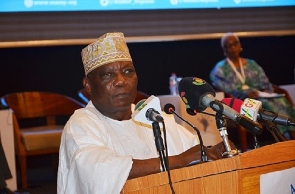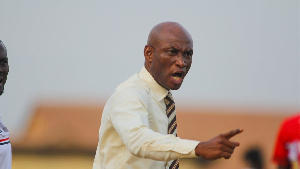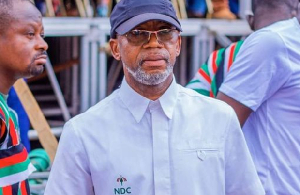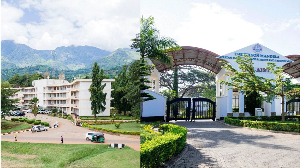Member states must understand, own and commit to the effective implementation of the Economic Community of West African States (ECOWAS)Vision 2050 for its success, the Commissioner for Political Affairs, Peace and Security, ECOWAS Commission, Dr. Abdel-Fatau Musah, has said.
That, he said was because lessons learnt from the implementation of the ECOWAS Vision 2020 showed that for vision 2050 to be successful, it required not only political will and leadership.
Dr. Musah said this when he spoke on “Retrospection of State-Citizens Relations in West Africa: Implications for the Realisation of ECOWAS Vision 2050,” during the opening ceremony of the West Africa Network for Peacebuilding (WANEP)17th General Assembly, Fellows Conference and Partners Forum in Accra on Tuesday.
The three-day conference is being held on the theme “ECOWAS Vision 2050: Towards an enhanced state-citizens relationship.”
Having the mantra “ECOWAS of the People: Peace and Prosperity for All”, the ECOWAS Vision 2050 reads as “A fully integrated community of people in a peaceful, prosperous region with strong institutions and respect for fundamental freedoms and working towards inclusive and sustainable development.”
Its five pillars include a secure, stable and peaceful region; a region endowed with strong institutions complies with the rule of law and fundamental freedoms and a fully integrated and prosperous region.
The others are a region mobilised for transformation, inclusive and sustainable development as well as a community of people fully inclusive of women, youth and children.
Dr. Musah emphasised that Vision 2050 placed the well-being of West African citizens and their development at the heart of its agenda and sought to promote an inclusive society in which special attention was paid to the most vulnerable segment of the population, especially women and young people.
However, Dr. Musah said the projected goals of Vision 2050 faced the risk of non-accomplishment in the face of shocks associated with the political, economic, social and environmental landscape.
It was for that reason, he said ECOWAS had among others raised peace and security, counter-terrorism and good governance, and equitable partnerships to the top of its agenda.
WANEP Executive Director, Dr. Chukwuemeka B. Eze, stated that a key ingredient to enhance the trust and confidence of citizens and the state lay with the way citizens were carried along in the conceptualisation, design and implementation of state policies.
“Deliberate infrastructure that forges citizen-state relationship which goes beyond intergovernmental civil society organisation partnership as exemplified in few good practices such as between WANEP with ECOWAS and AU is needed at member states to rebuild the trust deficit,” he added.
Prof. Oumar Ndongo, Board Chair, WANEP indicated that the pandemic and the Russia-Ukraine crisis eroded hard-won gains in security, poverty reduction and gender equity, and showed signs of becoming a permanent fixture in many lives.
In light of that, he said the WANEP stepped up to find ways to respond to constantly shifting circumstances and challenges of human security in West Africa, adding, “we continued to support the efforts of ECOWAS, AU and its member states in finding solutions to our common challenges.”
General News of Sunday, 26 March 2023
Source: ghanaiantimes.com.gh













